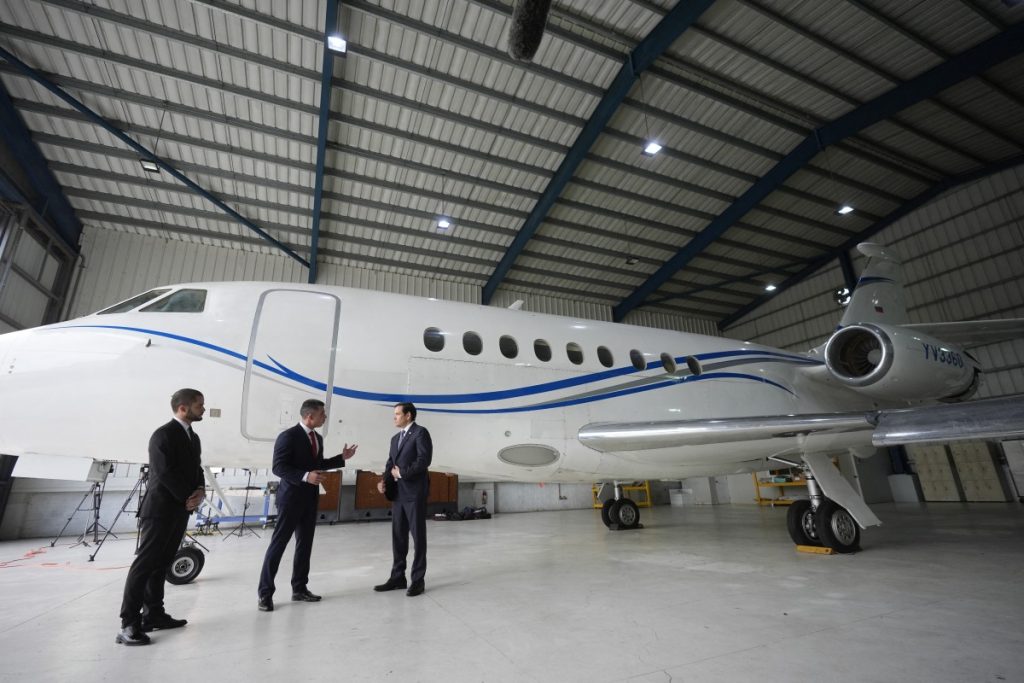US Secretary of State Marco Rubio oversaw the confiscation of a second aircraft belonging to Venezuela’s leftist regime on Thursday, demonstrating a firm stance despite the beginnings of diplomatic efforts.
Rubio, who is a strong adversary of leftist authoritarian leaders in Latin America, such as Venezuelan President Nicolas Maduro, observed the seizure of the plane after his first official trip, which included visits to five Latin American nations.
He visited a military airstrip in Santo Domingo’s capital where, before cameras, a Dominican prosecutor and a representative from US law enforcement affixed a “seized” notice on a Dassault Falcon 200 jet that displayed a Venezuelan flag.
“We are very grateful to the Dominican Republic for participating and cooperating with the US justice system,” Rubio said in an interview with SIN News.
“The message is that when there are sanctions because they are violating human rights, they are violating a whole series of things, traveling to Iran, helping countries that really wish harm to the United States,” he said, “these sanctions are going to be applied and reinforced.”
Last year, Dominican Republic authorities detained the aircraft after receiving reports from US officials that it had breached unilateral US sanctions imposed on Venezuela.
Venezuelan officials utilised the plane for flights to Greece, Turkey, Russia, Nicaragua, and Cuba and had brought it to the Dominican Republic for servicing, as stated by the US State Department. According to the Treasury Department, Maduro’s oil minister also used the jet to attend an OPEC meeting in the UAE in 2019.

In September, the US, during the administration of then-President Joe Biden, announced the seizure of a previous Venezuelan government aircraft in the Dominican Republic that had been used to ferry Maduro on international trips.
President Donald Trump had consistently pledged to take action against Maduro and, during his first term, unsuccessfully attempted to oust him amid widespread international scepticism regarding the legitimacy of Maduro’s re-election.
However, an envoy from Trump, Richard Grenell, visited Caracas last week to meet with Maduro, resulting in the release of six US prisoners.
Venezuela said that the discussions were conducted with “mutual respect,” but Rubio and other US officials have remained firm that there is no retreat from the US stance of not recognising Maduro as the legitimate president of Venezuela.
Rubio highlighted that Venezuela continued to pose a concern for US national security, citing the extensive migration stemming from its crumbling economy.


